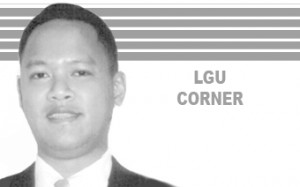Foundlings are special persons to be protected throughout their lives. They should never be discriminated upon.
(Below is a legal opinion on Foundlings based on international and domestic laws by the Association of Child Caring Agencies of the Philippines, ACCAP, headed by Atty. Gwen P. Gana)
Foundlings have an inherent right to have a nationality and are not stateless persons.
While difficulties of determining the nationality, parentage, background or even identity  of an abandoned  child,  are genuinely recognized, nonetheless, both international and local laws afford safeguards to ensure that foundlings shall not be considered stateless, the ACCAP in  a statement said.
A foundling is defined as “an infant that has been abandoned by its parents and is discovered and cared for by others.â€
Philippine rules on Adoption define a foundling as “a deserted or abandoned infant or child whose parents, guardian or relatives are unknown; or a child committed to an orphanage or charitable or similar institution with unknown facts of birth and parentage and registered in the Civil Register as a “foundlingâ€.
A Human Right
Customary International law recognizes the right to a nationality as a fundamental human right, including the proscription against the arbitrary deprivation of nationality and statelessness.
Historically, as early as the 1930’s, international law already recognized the model that foundlings should be afforded the protection of the state wherein which they were found.
Article 14 of the 1930 Hague Convention on Certain Questions Relating to the Conflict of Nationality Laws provides in Article 14 that “A child whose parents are both unknown shall have the nationality of the country of birth.
The Hague Convention adds that “If the child’s parentage is established, its nationality shall be determined by the rules applicable in cases where the parentage is known.â€
Based on the Hague Convention, a foundling is, until the contrary is proved, presumed to have been born on the territory of the State in which it was found.â€
International Conventions protect foundling’s nationality rights
Several international conventions like the Universal Declaration of Human Rights, the International Convention on Civil and Political Rights, the United Nations Convention on the Reduction of Statelessness, the 1997 European Convention on Nationality,  the 1969 American Convention on Human Rights,  the African Charter on the Rights and Welfare of the Child, and the Arab Charter on Human Rights, accord general and worldwide recognition to a foundling’s inherent right to acquire a nationality
More particularly, the United Nations Convention on the Rights of the Child guarantees the right of a foundling to a nationality, including the  protection against arbitrary deprivation of nationality and statelessness.
Burden of the State
States must carry the burden of proving that the loss or deprivation of nationality will not result in statelessness.
Thus, nationality acquired by foundlings may only be lost if it is proven that the child possesses the nationality of another State.
Philippine laws protect foundlings
In the Philippines, foundlings are considered as children in need of special protection.
Under  the Doctrine of Parens Patriae, the State has the responsibility to stand as an informal caretaker of the rights of children, or to act as the parent of any child or individual who is in need of protection.
1987 Constitution
Section 3(2), Article XV of the 1987 Constitution provides that “[The State shall defend] the right of children to assistance, including proper care and nutrition, and special protection from all forms of neglect, abuse, cruelty, exploitation, and other conditions prejudicial to their development.â€
The wealth of our domestic laws dealing with the rights of foundlings, all mirror the country’s obligations as a signatory to the United Nations Convention on the Rights of the Child to ensure that foundlings are accorded every protection that the State can provide against statelessness,  exploitation, abuse and neglect from the time of their birth and until the time they are adopted or taken in by the relevant government agencies concerned.
Some of the laws that protect the rights of foundlings are Republic Act No. 7610 or The Special Protection of Children Against Abuse, Exploitation, and Discrimination Act, Presidential Decree No. 603 or the Child and Youth Welfare Code, Republic Act No. 9523 or An Act Requiring the Certification of the Department of Social Welfare And Development (DSWD) to Declare a “Child Legally Available For Adoption†as a Prerequisite for Adoption Proceedings, and the provisions of the Family Code and the Domestic Adoption Act of 1998.
Foundlings: Wards of the state
Although the Philippines is not a signatory to the 1961 Convention on the Reduction of Statelessness, the tenor of our local statutes all emphasize the guarantees of protection towards foundlings as wards of the state and as children in need of special protection.
These guarantees are  based on Philippine obligations under the United Nations Convention on the Rights of the Child.
In line with Section 2, Article II of the 1987 Constitution, domestic laws should be interpreted in such a way as to advocate a foundling’s right to a nationality and against the existence of statelessness.

